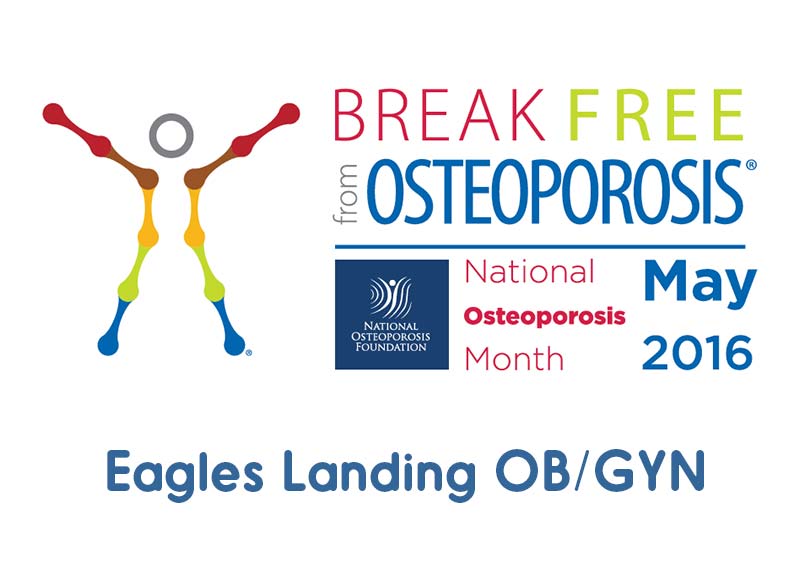
No matter what part of the Stockbridge area you call home, you know you need to protect your good health. From scheduling adult vaccinations and getting your annual exam to making a well woman appointment with Eagle’s Landing OB/GYN, you work hard to keep your mind and body healthy, but a hidden condition could be lurking – one that will soften your bones, bend your spine and hamper your quality of life.
That chronic condition is osteoporosis, and it is much more common in women than in men. The early symptoms of osteoporosis are often mild and indistinct, and in many cases there are no symptoms at all. That can make treating osteoporosis difficult, and the best defense against lasting damage is a prompt diagnosis.
May is National Osteoporosis Awareness Month
The month of May has been designated as National Osteoporosis Awareness Month, and that makes it the perfect time to get your bones tested and make sure your skeleton is still strong and resilient. Even if you have already been tested for osteoporosis, it is important to keep tabs on your bone health, since bone density can diminish over time, even if you are otherwise in good health.
Women in particular should have their bone density tested and be on the lookout for the early symptoms of osteoporosis. While men can and do get the disease, the affliction is far more common in women. That means you have a significant risk factor you cannot control – all the more reason to schedule your bone density test now, while National Osteoporosis Awareness Month is still in full swing.
Know the Symptoms of Osteoporosis
One of the things that makes osteoporosis such a pervasive problem is that it often presents only mild symptoms and sometimes no symptoms at all. Even so, there are some risk factors that tend to make osteoporosis more likely. If any of the following fit your situation, it is time to schedule your initial bone scan today.
- Being a post-menopausal woman – You are much more likely to experience osteoporosis if you have already gone through menopause.
- A family history of osteoporosis or bone fractures — Osteoporosis is thought to have a genetic component, so tell your doctor if a family member suffered from the disease.
- A deficiency in calcium or vitamin D – You need to be extra careful if you have been diagnosed with a calcium or vitamin D deficiency. Deficiencies in these minerals can predispose women, and some men, to osteoporosis.
If you even suspect you have a problem with your bone health, you should get tested for osteoporosis as soon as possible. Osteoporosis problems will only get worse over time, and the longer you put it off, the worse the damage will be. So take advantage of National Osteoporosis Awareness Month this May and have your bone density tested – you will be glad you did.
